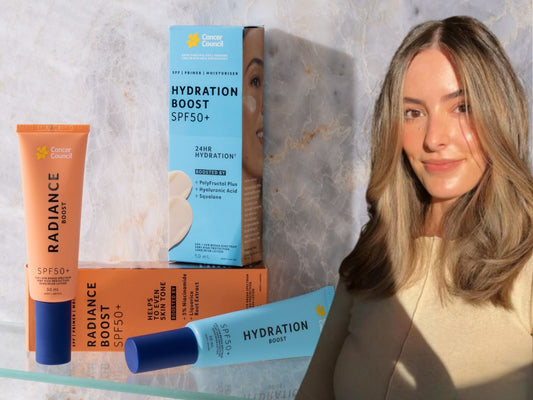It’s easy when you know how.
Let's be real, we all love staying up late scrolling TikTok and binging Netflix, but it's still important to factor in a good night's sleep. And what better day to do that than World Sleep Day?
If you’re wondering why getting a solid seven to nine hours is so important, listen up. Not only does it allow you to stay alert, focused, and productive throughout the day, it can also help to improve mood, boost memory, reduce stress levels, and support your immune system. Yep, getting good quality z’s can do a lot for you!.
If you find it hard to drift off into dreamland, you’re not alone. The good news? These benefits (and more) are still within reach. All you need to do to get amongst them is follow our tips for getting a good night's sleep.
Tip 1: Stick to a consistent bedtime
Try your best to go to bed and wake up at the same time every day, even on the weekends. Doing this helps to regulate your body's internal clock, which can improve the quality of your sleep. There’ll be days you don’t stick to the schedule, which is ok – shoot for progress, not perfection. It may be boring, but it does work.
Tip 2: Create a relaxing wind-down routine
Establishing a calming routine before bed helps signal to your body that it's time to chill. What that looks like is largely up to you, but we recommend taking a warm bath or steamy shower, then reading a book or listening to soothing music or a podcast. Supercharge your bath with our range of magnesium Epsom salts – choose from Pure (fragrance-free), Relax (for stress), Soothe (for tired muscles) and Sleep (for sleep, duh).
Tip 3: Make your bedroom conducive to shuteye
Take your cues for bedroom styling from the stereotypical handsome stranger: go for dark, cool, and quiet. If you have annoyingly bright street lamps out the front of your place, use blackout curtains or an eye mask to block out the light pollution at night time. Earplugs or a white noise machine can help to drown out noise.
Tip 4: Avoid stimulants in the PM
You might be partial to an evening espresso or glass of wine, but consuming stimulants before bed is bad news. (Nicotine too, in case you needed another reason to quit.) Not only can they interfere with your ability to nod off they also make it harder for you to stay asleep. Avoid them for at least a few hours before bed.
Tip 5: Limit screen time before bed
The blue light emitted by electronic devices can interfere with your body's production of melatonin, the hormone that regulates sleep. As fun as it is to fall asleep watching Friends reruns, try to avoid using electronic devices for at least an hour before you head off to bed. (At the very least, switch on Night mode.)
Tip 6: Manage your stress
Stress and anxiety can also interfere with your ability to fall asleep and stay asleep. Consider practising a relaxation technique like deep breathing, meditation, or yoga using a YouTube video or app. If that’s not your speed, why not take a little time to indulge in some self-care? Draw a warm bath, sprinkle in some Epzen salts, and let yourself drift off into a peaceful slumber. Your mind and body will thank you in the morning.



